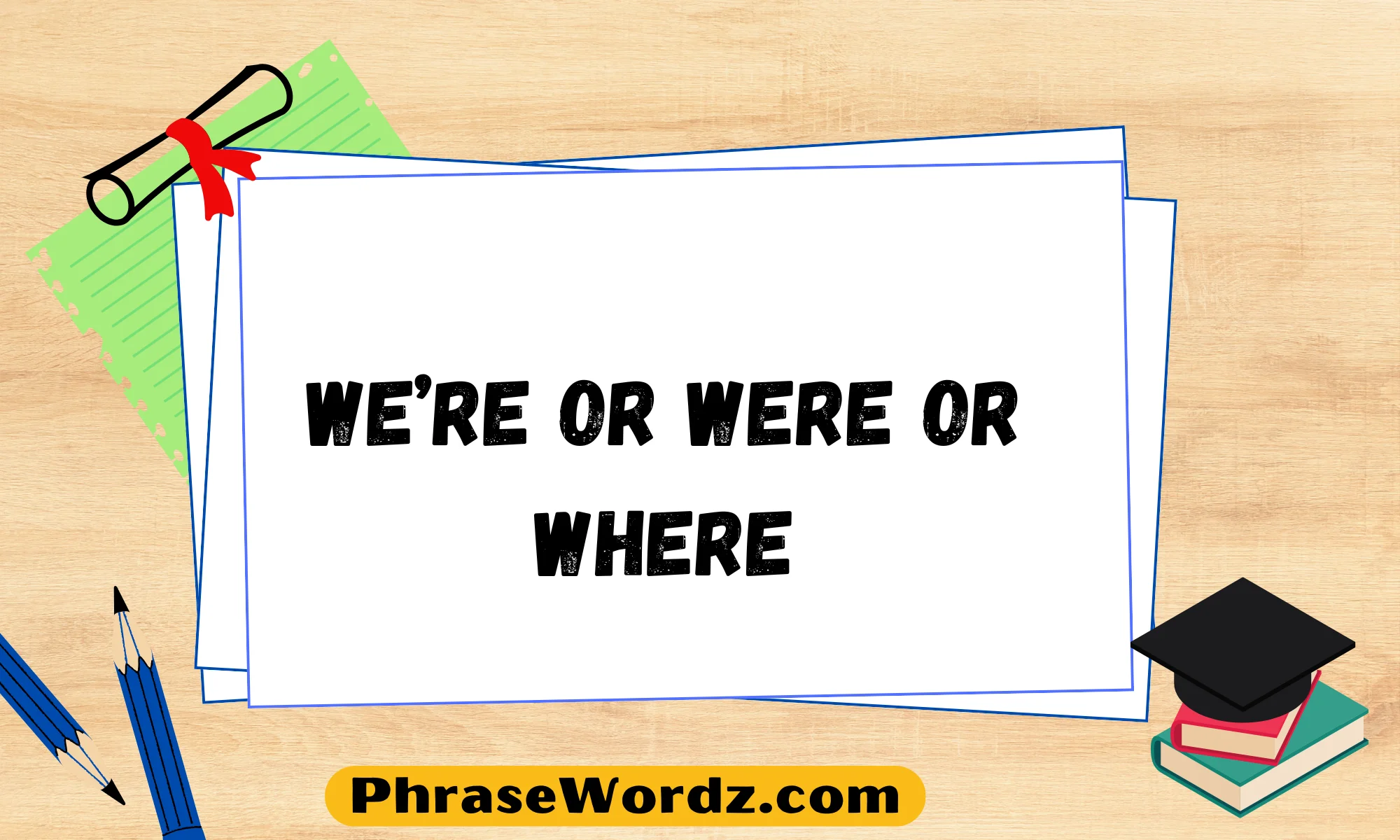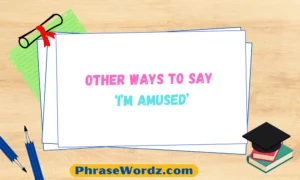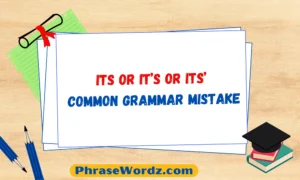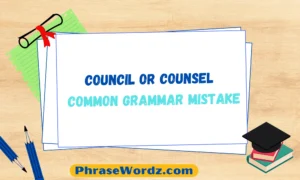English language learners and even native speakers often get confused between we’re, were, and where. These three words sound similar but have different meanings and uses in sentences.
Understanding “We’re,” “Were,” and “Where” is crucial to mastering grammar. “We’re” means “we are,” “were” refers to the past tense of “are,” and “where” indicates a place. Learn their differences to avoid common mistakes and communicate effectively.
Understanding how and when to use them correctly is essential for clear communication.
In this article, we’ll break down each word, explain the differences, and provide useful examples and scenarios to clarify how to use we’re, were, and where without making common grammar mistakes.
We’re: A Contraction of ‘We Are’
The word we’re is a contraction of “we are”. When you see we’re, you’re really seeing we are shortened for convenience. This contraction is used in conversational and informal writing to make sentences flow more naturally.
When to Use We’re
- When you want to say “we are” but prefer a shorter, more casual expression.
- It’s often used in speech, informal writing, and when you want to sound more conversational.
Examples of We’re:
- We’re going to the park later. (We are going to the park later.)
- We’re excited about the new project. (We are excited about the new project.)
- We’re planning a vacation next month. (We are planning a vacation next month.)
Writing an Email to a Colleague
Subject: We’re Preparing for the Client Meeting
Dear Mia,
I hope you’re doing well. Just a quick update – we’re getting everything ready for the upcoming client meeting on Monday. We’re also gathering all the necessary data and creating the presentation slides, which should be finalized by Friday.
Let me know if you need any additional information before the meeting.
Best regards,
Hannah
Were: The Past Tense of ‘Are’
The word were is the past tense of are. You’ll use were when you’re talking about something that happened in the past. It’s often paired with plural subjects like we, they, or you (plural).
When to Use Were
- When describing an action, state, or condition that took place in the past.
- It’s used with plural subjects or with the pronoun you (singular or plural).
Examples of Were:
- We were at the concert last night.
- They were working on the project all week.
- You were really helpful during the event.
Talking About a Past Event
Subject: Last Week’s Workshop
Hi Mia,
I wanted to thank you for your help during last week’s workshop. You were amazing at keeping everything organized, and the participants really appreciated it. I believe we were able to achieve our objectives and deliver valuable insights to the attendees.
Let’s debrief later this week.
Best,
Hannah
Where: Refers to a Location
The word where refers to a location or place. It’s used when asking or referring to a place or a position of something or someone.
When to Use Where
- To ask about a place or location.
- To describe a location or a place where something happens.
Examples of Where:
- Where are you going for vacation?
- This is the house where I grew up.
- Do you know where the nearest coffee shop is?
Asking for Directions
Subject: Where is the Venue?
Hi Mia,
Quick question – do you know where the meeting venue is for next week’s conference? I checked the map, but I’m still a bit confused about the exact location. Could you share any additional details to help me find it?
Thanks a lot!
Hannah
Common Mistakes and How to Avoid Them
Here are some of the most common mistakes involving we’re, were, and where, along with tips to avoid making them:
- Using We’re Instead of Were:
Incorrect: We’re at the party last night.
Correct: We were at the party last night.
Tip: Remember that we’re is a contraction of “we are”, so it can only be used in the present tense, while were is past tense. - Using Were Instead of Where:
Incorrect: Do you know were the keys are?
Correct: Do you know where the keys are?
Tip: Where always refers to location, so use where to talk about a place. - Using Where Instead of Were:
Incorrect: They where really excited about the event.
Correct: They were really excited about the event.
Tip: Were is used for past actions, while where is about location.
Quick Tips for Using We’re, Were, and Where Correctly
- If you can replace the word with “we are”, use we’re.
- If you’re describing something that happened in the past, use were.
- If you’re talking about location, use where.
Memorable Mnemonic:
- We’re = We Are (present tense)
- Were = Past tense of are
- Where = Location (think of “here” in “where”)
Conclusion
The difference between we’re, were, and where is subtle, but mastering their use is crucial for clear and effective communication. By understanding the meanings and contexts for each word, you can avoid common grammar mistakes that confuse readers and dilute the impact of your writing.
With practice and attention to detail, you’ll confidently distinguish between these words and use them correctly in emails, conversations, and written communication.
Remember, if you ever get stuck, you can always break down the word to its meaning (is it about a location? Is it about the past?) and you’ll find your way.











